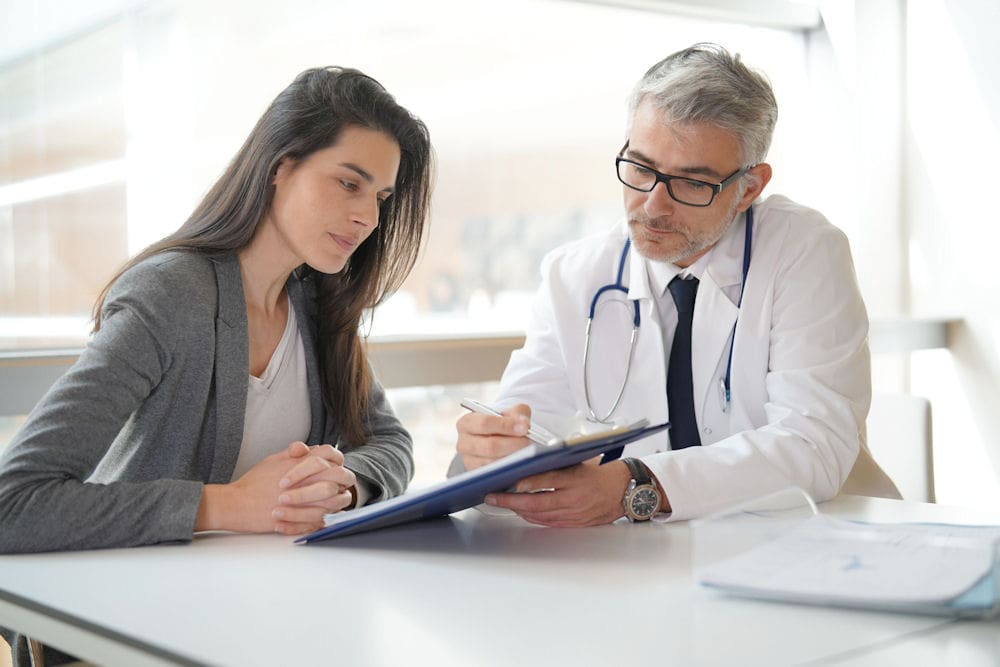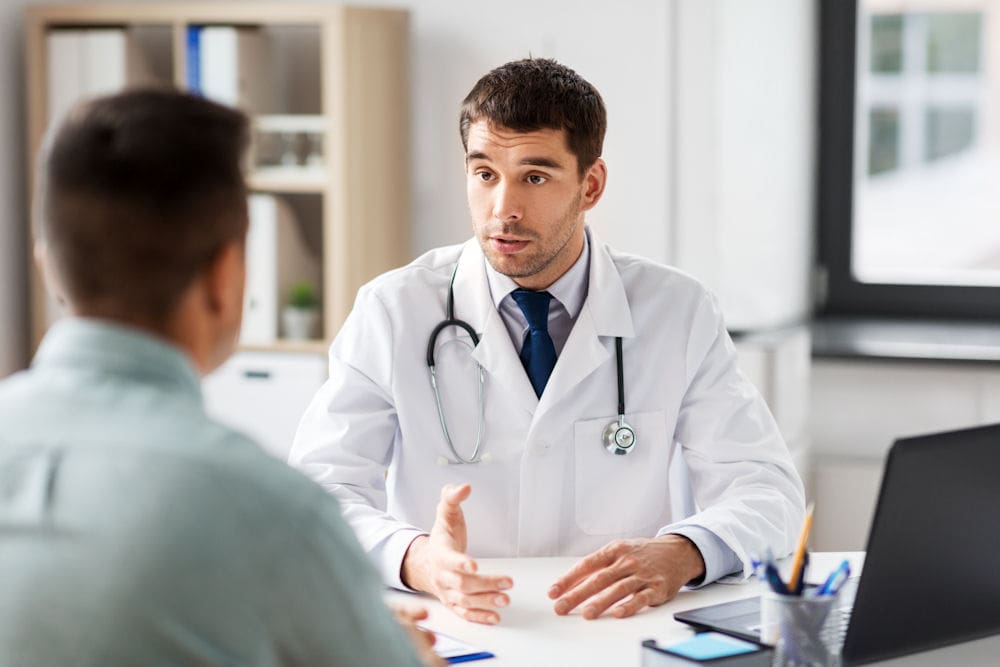Substance Abuse Treatment in Maryland
The Freedom Center is a premier drug and alcohol treatment centers. We offer comprehensive substance abuse treatment services in Maryland to treat people with an addiction to prescription drugs. Substance abuse treatment is difficult to start; the process can be scary.
However, at The Freedom Center in Maryland, we treat each person on an individualized basis. This allows us to give those seeking rehab the best chance at recovery success, both in the treatment center during recovery and outside of it after.
What is Substance Abuse?
Substance abuse, also known as drug abuse, is the excessive or uncontrolled use of drugs that can interfere with a person’s physical, mental, and social functioning. This type of behavior typically leads to addiction and a range of other health problems. People commonly abuse substances such as alcohol, nicotine, cocaine, heroin, and marijuana. Other substances may include prescription drugs, inhalants, and club drugs.
Substance abuse can lead to a wide range of physical and mental health problems, including chronic diseases such as cancer, heart disease, and liver failure; social issues such as homelessness, unemployment, financial ruin, and family breakdown; legal problems such as arrests for driving under the influence or possession of narcotics; and increased risk of suicide or accidental death. In addition, substance abuse can have serious long-term effects on a person’s mental and emotional well-being, including depression, anxiety, paranoia, and even psychosis.
What are the Characteristics of Substance Use Disorder?
Substance use disorder is characterized by compulsive behaviors, cravings for the substance, and physical dependence. People with this disorder often have difficulty controlling their use despite feeling overwhelmed by negative consequences. The severity of the disorder will vary depending on the person and the substance they are using.
How Does a Person Become Addicted to Drugs and Alcohol?
A person can become addicted to substances through various mechanisms, including the following:
- Genetic predisposition
- Environmental factors
- Peer pressure
- Self-medication
- Pre-existing mental health disorders
- Development of tolerance or physical dependence on the substance
Genetic predisposition can increase the likelihood of a person developing an addiction to a particular drug, due to changes in the brain or body chemistry that are passed down through generations. Environmental factors, such as growing up in an area where access to drugs is easy, being exposed to a family member who is addicted, or living with a stressful or traumatic event, can also increase the risk of addiction. Peer pressure plays a large role in why people turn to drugs, and many young people feel that they have no choice but to use them to fit in with their friends.
Self-medication is another common cause of addiction, as people attempt to treat underlying mental health issues, such as depression or anxiety, with drugs. This often leads to an increase in drug use and a more serious addiction that is harder to treat.
What are the Symptoms of Substance Use Disorder?
Substance use disorder is a serious mental illness that can affect anyone. It occurs when someone uses drugs or alcohol in a way that disrupts their daily life. This could include their health, work, school, relationships, and/or finances. Common signs of substance use disorder include the following:
- A strong desire to use drugs or alcohol
- Using more than intended or in higher doses
- Neglecting important responsibilities
- Participating in risky activities
- Spending time and resources obtaining, using, and recovering from drug or alcohol use
- Developing tolerance and withdrawal symptoms when not using
- Continuing to use drugs or alcohol despite negative consequences
If you are concerned that someone close to you may have a substance use disorder, it is important to seek help. At The Freedom Center, we offer comprehensive substance abuse treatment that meets the needs of the individual first. Some of our treatment options such as counseling and medication can help people overcome addiction and lead healthier lives. Additionally, support groups like Alcoholics Anonymous and Narcotics Anonymous
Common Addictions Treated at our Maryland Rehab Center
Some of the most common addictions treated at our Maryland rehab center include the following:
- Alcohol addiction
- Heroin addiction
- Cocaine addiction
- Meth addiction
- Prescription drug addiction
What is Alcohol Addiction?
Alcohol addiction, also known as alcoholism, is a chronic disorder in which people become dependent on alcohol to the point where it interferes with their daily lives. People who suffer from alcohol addiction experience cravings for alcohol and will continue to drink despite experiencing physical and psychological problems related to drinking. They may find themselves unable to control their urge to consume alcohol, and they may prioritize drinking over other activities.
What is Heroin Addiction?
Heroin addiction is a severe, chronic medical condition that is characterized by compulsive drug seeking and use despite negative consequences. It is an opioid substance derived from morphine, which comes from the seeds of certain types of poppy plants. Heroin can be injected, smoked, or snorted depending on its form. When used, it produces a surge of dopamine in the brain, leading to an intense feeling of euphoria.
Heroin addiction is a complex disorder characterized by compulsive drug-seeking and use despite serious consequences. People who are addicted to heroin experience physical and psychological cravings for the drug regularly, regardless of any negative consequences that may follow from using it.
What is Cocaine Addiction?
Cocaine addiction is a serious and potentially life-threatening condition that occurs when someone compulsively uses the drug despite experiencing adverse physical, psychological, and social consequences. People with cocaine addiction often feel as if they need to use cocaine to cope with day-to-day stressors or difficulties. Over time, their tolerance for the drug increases, and they may need more of the drug to feel its effects. This can lead to compulsive cocaine use, which can cause devastating physical and psychological health problems.
What is Meth Addiction?
Methamphetamine (meth) addiction is a serious problem in many countries and communities. It is an illegal drug that can be highly addictive, leading to physical and psychological dependence. Individuals who are addicted to meth may experience intense cravings for the drug, making it difficult for them to stop using without professional help. Meth users often engage in dangerous behaviors, such as aggression and violent outbursts, as well as risky sexual practices. They may also lose interest in relationships and hobbies that used to bring them joy.
What is Prescription Drug Addiction?
Prescription drug addiction is a growing problem in the United States and affects millions of people. It refers to the abuse of prescription medications – such as opioids, sedatives, stimulants, and tranquilizers – for non-medical purposes. When someone misuses or overuses these drugs it can lead to physical dependence and intense cravings that make it difficult to stop taking them. In many cases, addiction can lead to serious health problems and even death.
Prescription drug abuse is often seen as a “safer” way of getting high than using illicit drugs like heroin or cocaine. However, the risks associated with prescription drug abuse are still very real and can be just as dangerous. People who abuse prescription drugs are at risk of developing an addiction, experiencing an overdose, or suffering from long-term health complications.
How Long Does Substance Abuse Treatment Last?
Substance abuse treatment typically lasts anywhere from 28 days to 90 days, depending on a person’s individual needs. However, many people require long-term support and are encouraged to continue their recovery process through outpatient services such as counseling or therapy. This can last for months or even years after the initial treatment period. The length of time an individual will spend in treatment also depends on their willingness to work toward their recovery and the severity of the addiction.
The primary goal of substance abuse treatment is to help individuals develop healthier coping skills and healthier lifestyle choices, so they can maintain a life free from addictive substances. Treatment often includes individual counseling, group therapy, and support groups. It may be beneficial for individuals to attend 12-step meetings, such as Alcoholics Anonymous or Narcotics Anonymous.
Treatment can also include the following:
- Inpatient/residential treatment
- Outpatient treatment
- Medication-assisted treatment (MAT)
What is Inpatient Treatment for Substance Abuse?
Inpatient treatment for substance abuse is an option for individuals who need a higher level of care than outpatient treatment can provide. Inpatient programs offer services to help people overcome their addiction, including medically supervised detoxification, counseling, and support.
The goal of inpatient treatment is to give the individual the tools they need to maintain sobriety and work towards recovery. During inpatient treatment, individuals can expect to receive individual counseling sessions with a therapist or drug counselor, as well as group therapy and other activities that assist in recovery.
What is Outpatient Treatment for Substance Abuse?
Outpatient treatment for substance abuse is a term used to describe treatments and therapies conducted in an outpatient setting, such as a physician’s office or drug rehab center. Outpatient treatment can be beneficial for individuals who are not able to commit to long-term residential programs or prefer the flexibility of attending therapy sessions from their own homes or in the workplace. Outpatient treatment for substance abuse typically involves individual and group counseling sessions, as well as 12-step meetings and other support programs. Outpatient treatment may also include medication-assisted treatments (MAT) such as buprenorphine or methadone to help manage withdrawal symptoms and drug cravings.
What is Medically Assisted Treatment for Substance Abuse?
Medically assisted treatment for substance abuse is a comprehensive approach to treating addiction that combines medication with counseling and support services. The goal of this type of treatment is to reduce dependence on drugs or alcohol, improve overall health and functioning, and prevent relapse.
Medications are used in combination with psychotherapy, individual counseling, group therapy, peer-support programs, and other services to help individuals safely manage their substance use disorder. Medications such as buprenorphine, methadone, naltrexone, and acamprosate are commonly used in combination with counseling and support services to reduce cravings for substances.
Receive the Care You Need at our Substance Abuse Treatment Center in Maryland
At The Freedom Center in Maryland, we offer comprehensive treatment for substance use disorders. If you or a loved one would like to find out more, you can contact us here.






























